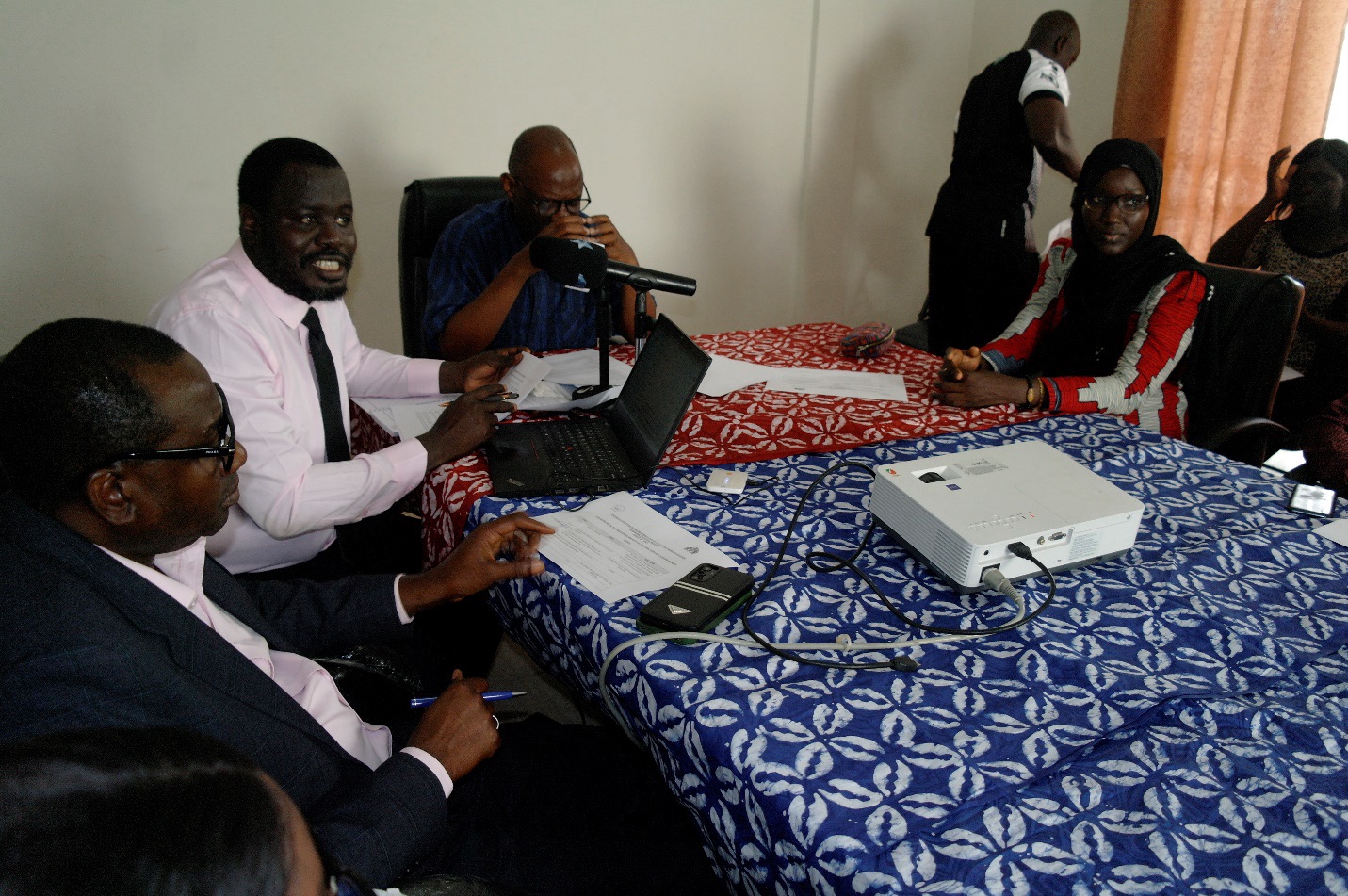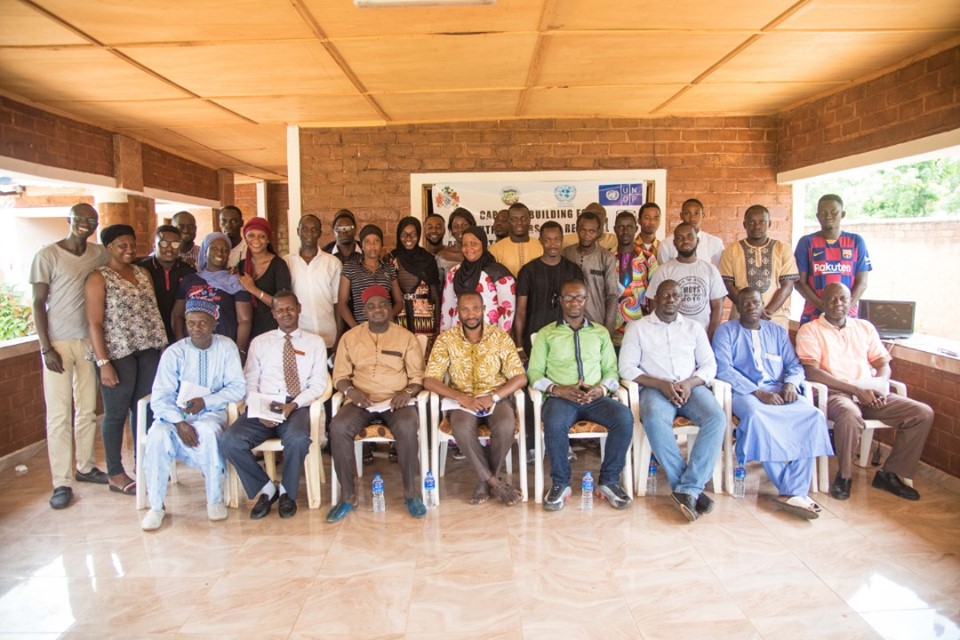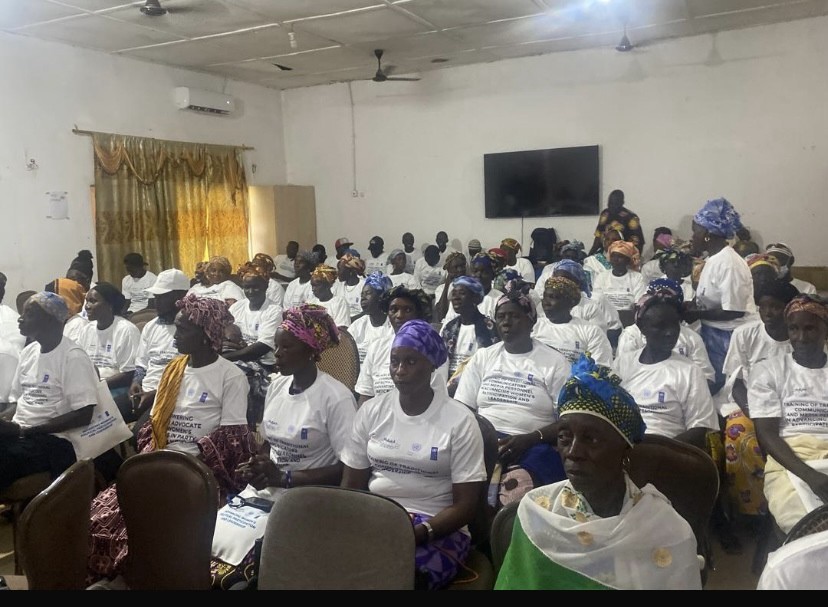By Yunus S Saliu

The inaugurated Steering Committee, chaired by the National Centre for Arts and Culture (NCAC), on the National Memorialization Framework, on Thursday, 22nd August, launched the Technical Committee for the Implementation of the Post TRRC National Memorialization Framework.
The launch of this technical committee was held at the National Centre for Arts and Culture Annex – RDD office along KairabaAvenue.
Speaking at the official launching of the Technical Committee, Hassoum Ceesay, Director General of the NCAC dwelt on the background and term of reference for the Technical Committee on the implementation of the National Memorialization Framework.
In November 2021, he explained, the Truth, Reconciliation, and Reparations Commission (TRRC) submitted its final report to the government, this included recommendations on measures to ensure accountability, promote reconciliation and healing, and provide reparations for victims and their families.
“The recommendations include institutional reforms to strengthen the rule of law, enhance human rights protections, and ensure that state security agencies are accountable to the public. The TRRC also recommended the establishment of a reparations fund to provide financial and other forms of assistance to victims and their families,” he stated.
The Director General highlighted the commitment of the government towards the White Paper on the TRRC recommendations to implement the 263 of the TRRC recommendations, and “in May 2022, developed an Implementation Plan to guide the process, as the White Paper recognized memorialization as a symbolic form of reparations that can serve as a driver of social cohesion and reconciliation.”
He noted that the Implementation Plan on the White Paper is a strategic tool that aims to ensure that the TRRC’s recommendations are fully and effectively implemented, in a manner that is transparent, inclusive, and accountable.
However, the purpose of the launched Technical Committee, DG Hassoum explained is to provide technical support and serve as an advisory committee to the Steering Committee on Memorialization.
So, “the Technical Committee will ensure that the Steering Committee acts in line with the principles enshrined in the Implementation Plan and Implements the recommendations in a victim-focused manner that is transparent and inclusive,” he added.
Director General of the NCAC disclosed the composition of the Technical Committee comprising the NCAC (as chair), Ministries of Justice, Lands, Regional Government and Religious Affairs, Higher Education, Research, Science and Technology, Basic and Secondary Education, Tourism and Culture, Alliance of Victim Led Organizations (AVLO (8 members), the Gambia Tourism Board, The Association of Non-Governmental Organizations (TANGO), University of The Gambia, Associations of Gambian Painters, Artists, Poets, Actors, etc, Gambia Press Union, National Human Rights Commission, National Library Services, National Records Services, Gambia Radio and Television Services, UNESCO and International Centre for Transitional Justice.
He noted that “the composition of the Technical Committee can be expanded by the Chair to include other relevant organizations,” while he outlined the committee’s responsibilities, meetings, format, and procedures.
He, also, expanded on the confidentiality and conflict of interest while adding that the Post TRRC Unit at the Ministry of Justice will provide logistical and where necessary, administrative support to the Secretariat.
Ma’am Saffiatou Nyang, Legal Consultant, Post TRRC Unit said the Technical Committee role is more of an advisory to the Steering Committee. She noted that memorialization is a bit of a technical area so “they would be providing technical support to the steering committee which comprises mainly of Ministries that will be taking strategic and policy decisions.”
The reason for coming up with the committee, she said, is basically in line with the government’s furtherance of the recommendations of the TRRC, thus some recommendations were on memorialization, particularly “the TRRC recommended the renaming of the Arch 22 in Banjul and also made recommendations on other areas that need to be commemorated annually by the government. So the reason why we are having these committees is we need to have a memorialization strategy or framework that would more or less guide how we do memorialization.”
Meanwhile, the NCAC is chairing the memorialization committee. Still, there are other committees, like on enforced disappearance, “we have a committee on archiving, and we also have a national Steering Committee, which has about 16 government Ministries that sit every quarter to look at the direction we’re heading at how we’re implementing the recommendation. So definitely, there’s commitment. And there’s been a lot of things going on as well in terms of the implementation,” the Legal Consultant, Post TRRC Unit added.





